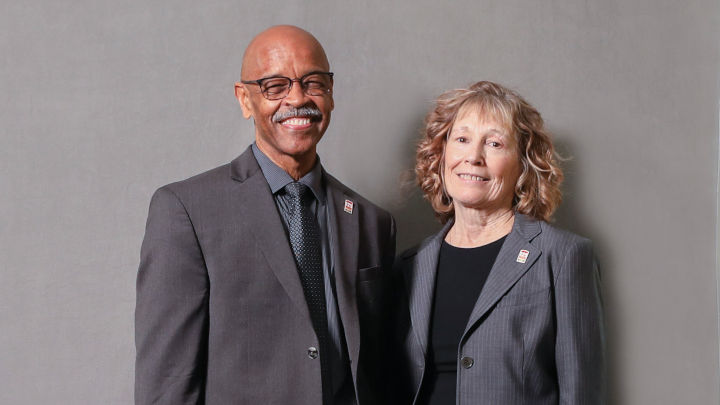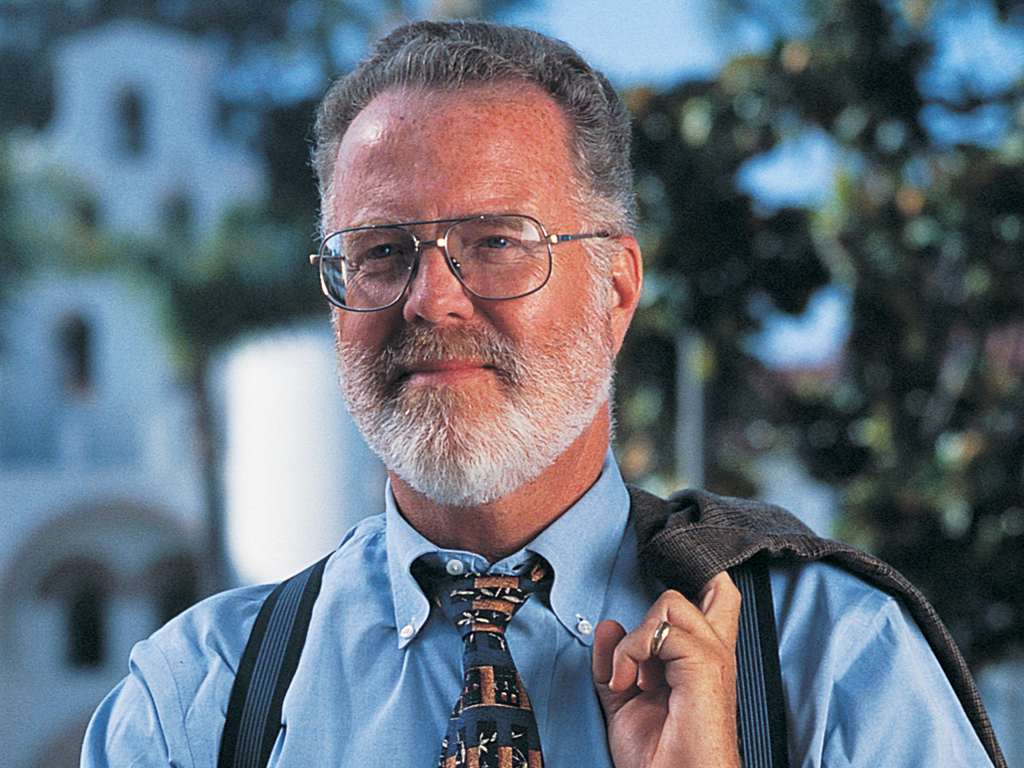Why We Give
San Diego State University receives support in many ways. Joseph F. Johnson Jr. and Cynthia L. Uline have focused their gifts on education.
By Jeff Ristine
This story was published in the Summer 2023 Issue of SDSU Magazine.

The Donors
Joseph F. Johnson Jr., SDSU professor emeritus of educational leadership,
dean emeritus of the College of Education, former interim provost and senior vice president, and Cynthia L. Uline, professor emerita of educational leadership, former director of the Ed.D. program in pre-K through 12th grade educational leadership and former executive director of the National Center for the 21st Century Schoolhouse
The Gifts
$75,000 bequest to support the National Center for Urban School Transformation
$75,000 Gilda Johnson Shumate Endowed Scholarship
Joseph F. Johnson Jr. and Cynthia L. Uline were fascinated by what they heard from the students at a high-achieving, predominantly Black and Latino school in Fort Worth, Texas, a model for the kind of education the couple believes every child deserves.
The Paul Laurence Dunbar Young Men’s Leadership Academy was honored in 2018 as one of America’s best urban schools by the National Center for Urban School Transformation, where Johnson served as founding director. It’s among more than 170 schools to date to receive the award, which the couple is supporting through a bequest to the center’s home at San Diego State University. High expectations are reflected in the school’s near-100% graduation rate and a creed that affirms, “I am destined for success in everything I do.”
In follow-up interviews via Zoom in 2021, Johnson and Uline asked some of its inner-city African American students why the school was so successful.
“They said, ‘We have the dream team of teachers here,’” Johnson says. “‘They believe in us, and they want to make our dreams come true.’”
Johnson and Uline endowed a $75,000 scholarship for current and future educators who are involved with the university’s Black Resource Center. It’s named for Johnson’s mother, Gilda Johnson Shumate, who during the family’s temporary residency in Louisiana “didn’t take no for an answer,” they say, in her drive to get Johnson and his three sisters into a Catholic school that hadn’t previously admitted Black pupils.
The NCUST endowment is named for former College of Education Dean Lionel “Skip” Meno, who recruited Johnson and Uline to SDSU after crossing paths with them in educational settings repeatedly over the years.“These gifts are an investment in the future. Establishing essential initiatives not only enriches the minds of individuals but builds stronger communities and a better world for generations to come as well.”
“He’s my hero,” Uline says. “He’s just such an incredible leader in all the contexts in which he’s worked, making a difference especially for students who have been marginalized.”
It was Meno and former SDSU president Stephen L. Weber who established NCUST, determined to give the university a role in improving urban education. NCUST studies and teaching practices have transformed learning in urban schools, historically hampered by underfunding or low expectations. Its goal is nothing less than to obliterate the concept of achievement gaps.
Accordingly, NCUST’s “best urban schools” awards go to those achieving impressive outcomes for all the demographic groups they serve. It’s a mission that dovetails with the SDSU–based National Center for the 21st Century Schoolhouse.
Uline, its former executive director, says the center works to help school leaders see the importance of the physical environment where learning takes place, especially for “students who have been on the margins, whose schools are deplorable in many cases.”
It’s all about “preparing leaders who are equity driven, preparing leaders who understand how to build these dream teams, preparing leaders who understand the whole environment is part of the way toward success for all kids,” Uline says.
There’s that metaphor from the Fort Worth kids again, and part of the motivation for the couple’s philanthropy.
“In a way all the work that we’ve done before San Diego State, at San Diego State and now into retirement is really all about trying to increase the likelihood that kids all over this country will have dream teams of educators,” Johnson says. “That is a big piece of what our careers have been about.”
A Lasting Impact
Stephen L. Weber is the type of person who looks forward, not back. That’s partly why the former SDSU president (1996–2011) established the President Stephen L. Weber Fund for Excellence with a $100,000 gift. The endowment will support faculty in the College of Arts and Letters and give them the resources necessary to present papers, conduct research and more.

Weber, now 81 years old, was diagnosed with ALS in 2021, and this fund is just one aspect of his impressive legacy. “I look back with a great deal of pride and satisfaction on the time I was privileged to spend at San Diego State,” Weber says. “I am so proud of [the university] and what it has done.” —Staff
